| This document has been prepared under the auspices of the United Nations Development Programme/United Nations Centre for Human Settlements (Habitat)/World Banksponsored Urban Management Programme. The findings, interpretations, and conclusions expressed here are those of the authors and do not necessarily represent the views of the United Nations Development Programme, UNCHS, the World Bank, or any of their affiliated organizations. |
Deputy Director
Division for Global and Interregional Programmes
United Nations Development Programme |
Chief
Technical Co-operation Division
United Nations Centre for Human Settlements (Habitat) |
Chief
Urban Development Division
Transport, Water, and Urban Development Department
Environmentally Sustainable Development |
|
|
Copyright 1994
The International Bank for Reconstruction and Development/The World Bank
1818 H Street, N.W. Washington, D.C.
20433, U.S.A. |
All rights reserved
Manufactured in the United States of America
First printing May 1994
Second printing February 1995 |
| The Urban Management Programme (UMP) represents a major approach by the United Nations family of organizations, together with external support agencies (ESAS), to strengthen the contribution that cities and towns in developing countries make toward economic growth, social development, and the alleviation of poverty. The program seeks to develop and promote appropriate policies and tools for municipal finance and administration, land management, infrastructure management, environmental management, and poverty alleviation. Through a capacity building component, the UMP plans to establish an effective partnership with national, regional, and global networks and ESAS in applied research, dissemination of information, and experiences of best practices and promising options. |
| The findings, interpretations, and conclusions expressed in this paper are entirely those of the author(s) and should not be attributed in any manner to the World Bank, to its affiliated organizations, or to members of its Board of Executive Directors or the countries they represent. The World Bank does not guarantee the accuracy of the data included in this publication and accepts no responsibility whatsoever for any consequence of their use. Some sources cited in this paper may be informal documents that are not readily available. The boundaries, colors, denominations, and other information shown on any map in this volume do not imply on the part of the World Bank Group any judgment on the legal status of any territory or the endorsement or acceptance of such boundaries. |
| The material in this publication is copyrighted. Requests for permission to reproduce portions of it should be sent to the Office of the Publisher at the address shown in the copyright notice above. The World Bank encourages dissemination of its work and will normally give permission promptly and, when the reproduction is for noncommercial purposes, without asking a fee. Permission to copy portions for classroom use is granted through the Copyright Clearance Center, Inc., Suite 910, 222 Rosewood Drive, Danvers, Massachusetts 01923, U.S.A. |
Library of Congress Cataloging-in-Publication Data
Leitmann, Josef.
Rapid urban environmental assessment : lessons from cities in the
developing world / Josef Leitmann.
p. cm. (Urban management and the environment, ISSN
1020-0215 ; 14)
Includes bibliographical references.
Contents: v. 1. Methodology and preliminary findings.
ISBN 0-8213-2790-9
1. Urban management program. 2. Cities and townsDeveloping
countriesEnvironmental conditions. 3. Environmental risk
assessmentDeveloping countries. 4. Urban ecologyDeveloping
countries. 5. Environmental policyDeveloping countries.
I. UNDP/UNCHS/World Bank Urban Management Programme. II. Title.
III. Series: Urban management program. Urban management and the
environment ; 14.
GE160.D44L45 1994
363.70091732dc20 94-10848
CIP |
|


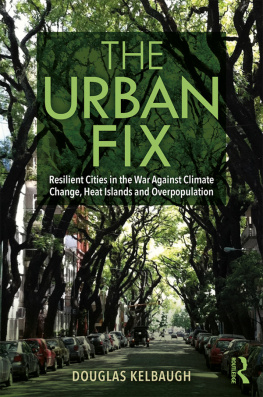
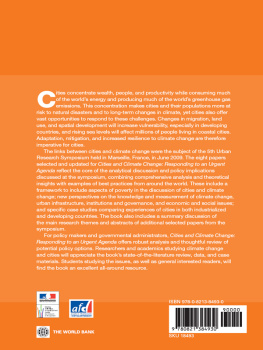
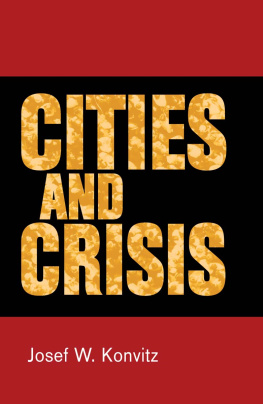
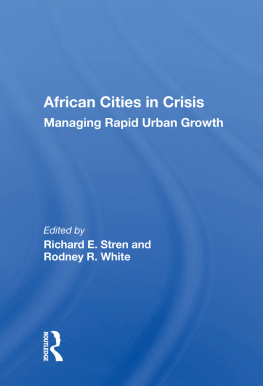

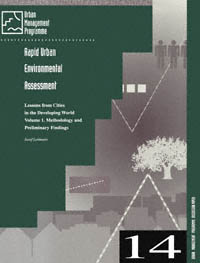
 .
.